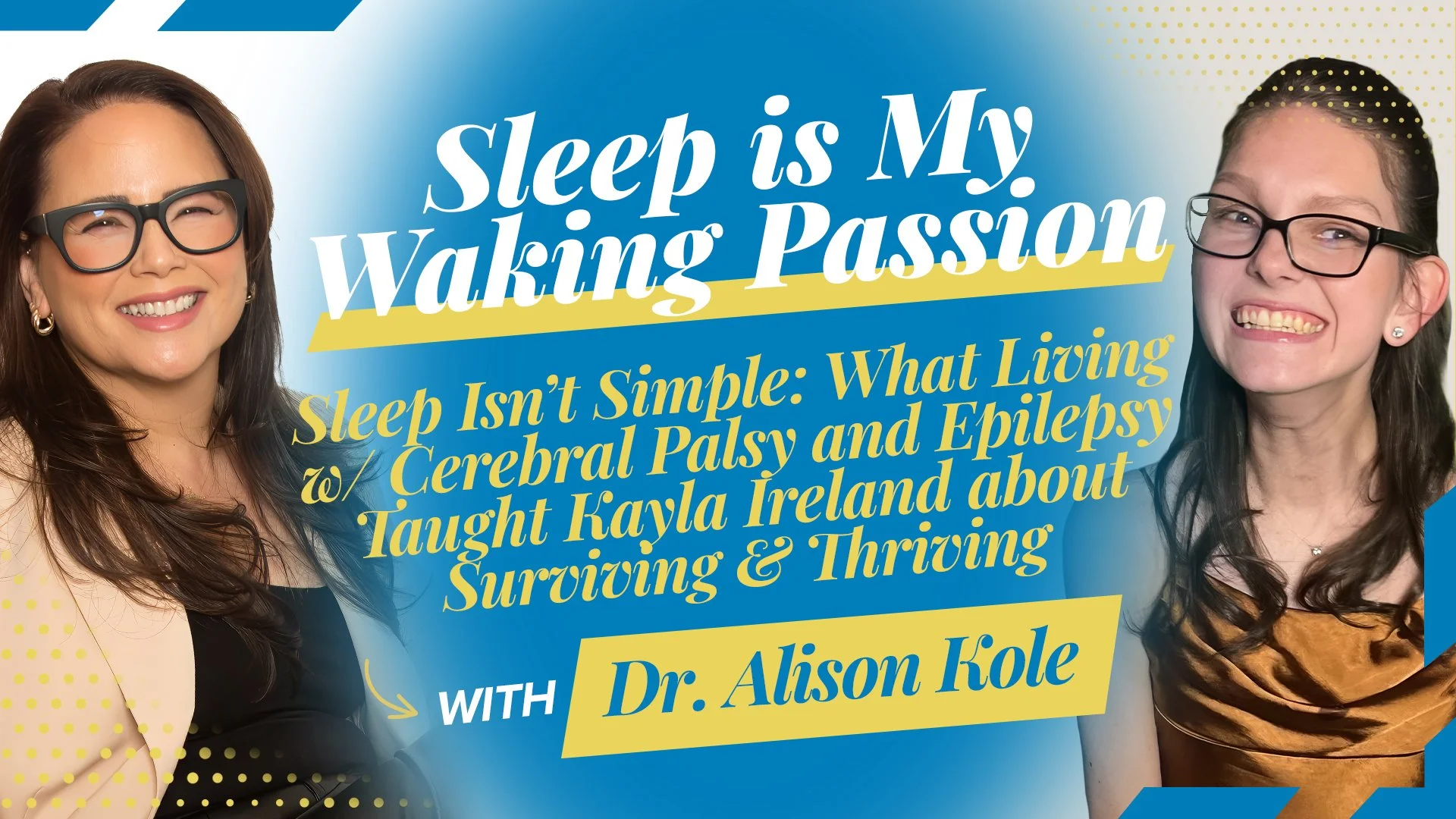What Cerebral Palsy Taught Me About Sleep—And Humanity: Lessons From Kayla, My Patients, and Everything the Textbooks Leave Out
The greatest lessons in sleep medicine rarely come from textbooks—they’re revealed in the stories and struggles of patients. This week, after an unforgettable conversation with Kayla Ireland, host of Kindly Neurodivergent with Kay, I find myself reflecting deeply on the true cost and complexity of sleep for people living with cerebral palsy and epilepsy. Kayla’s revelations—combined with the lived narratives of patients in my clinic—are why I believe sleep deserves more curiosity, compassion, and creative solutions than we offer in any medical manual.
Why Sleep Is So Different for People with Cerebral Palsy
Cerebral palsy (CP) isn’t just a motor disorder—it’s a label that encompasses diverse nervous system differences, chronic pain, breathing complications, and adaptive strategies that spill into every aspect of sleep. Studies show up to 46% of children and adults with CP experience significant sleep disturbances, from trouble falling asleep and frequent awakenings to restless legs, sleep apnea, and vivid nightmares. The constant physical effort required throughout the day doesn’t end at bedtime. As Kayla shared, “my body never stops working. Sleep isn’t just rest for me; it’s how my brain and body recover from non-stop effort.”
Common Sleep Disruptors in CP
Pain: Spasticity, muscle spasms, abnormal posture, and skin breakdown cause discomfort and interrupt sleep.
Breathing Problems: Drooling, GERD, and obstructive sleep apnea are widespread and undermine restful nights.
Movement Restrictions: Difficulty repositioning in bed creates pressure points and increases pain and sleep fragmentation.
Epilepsy: Sleep and seizures are intertwined—roughly 30% of seizures in CP occur at night, and anti-seizure medications like clonazepam or Keppra can change sleep quality or induce unwanted fatigue.
Learning from Lived Experience: Kayla’s Story
Kayla Ireland’s honesty and humor shine throughout the episode. For her, congestion means elevating the head of the bed, but navigating sleep isn’t just about pillows and posture. The question of using a mouthguard for TMJ is far from straightforward—when swallowing disorders or an overactive bite reflex are present, a mouthguard can actually raise the risk of aspiration. In Kayla’s case, the very device meant to help can become a hazard if not chosen carefully, making nightly routines even more complex. “When I don’t get enough rest, my motor skills become less precise, and my thinking slows down, making daily tasks more difficult.” Families play a critical role in spotting early warning signs—Kayla’s seizures were often caught first by her parents.
The Emotional Echo
Sleep deprivation brings more than just grogginess; it delivers emotional frustration and stress for both the person with CP and the entire household. Nearly 40% of parents who care for children with CP suffer from significant sleep disruption themselves, affecting safety, mood, and resilience. Safety and comfort in the sleep environment become essential pillars.
Practical Sleep Tips for CP
Elevate the head of the bed (a 30-degree elevation is standard in the hospital setting) for congestion or aspiration risk
Adjust temperature, bedding, and lighting to support sensitive sensory needs
Use safety monitoring for epilepsy risks overnight
Maintain a sleep and seizure diary for diagnostic clarity
Honor the emotional needs of everyone in the household
What Every Sleep Doctor (and Patient!) Should Remember
Each conversation—with Kayla, with my patients, with their families—reminds me that sleep isn’t a privilege, but a necessity, sometimes harder to win and more costly for those living with CP and other neurodivergent conditions. The right questions, open communication, and vigilant care can make all the difference. Sleep is how we recover, how we find ourselves, and how we live more fully—especially when life asks us to work harder for every hour of rest.
Subscribe to my YouTube channel here. Also available on Apple Podcasts & Spotify.
For more sleep tips, advice, and solutions, sign up for my monthly newsletter below, where we help you get the rest you deserve!
